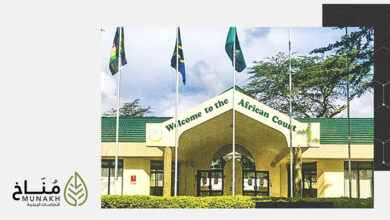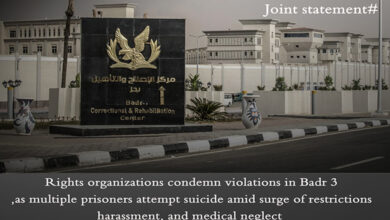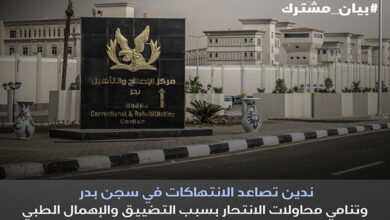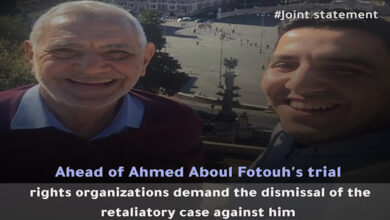Historic Climate Justice Petition to Be Submitted to the African Court by Civil Society
PRESS STATEMENT
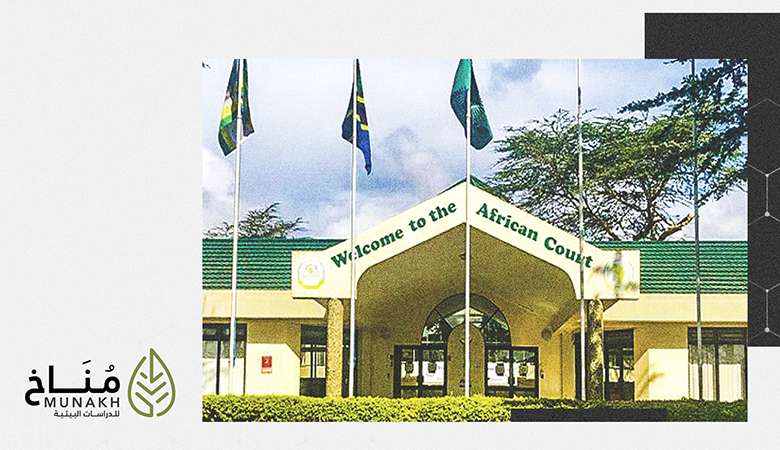
(May 1, 2025 – Arusha, Tanzania): In a landmark move for environmental justice and human rights in Africa, the African Climate Platform, Resilient40, Natural Justice and Environmental Lawyer Collective for Africa in collaboration with the Pan African Lawyers Union (PALU), will submit a petition to the African Court on Human and Peoples’ Rights on May 2, 2025, in Arusha, Tanzania. The petition requests an Advisory Opinion on the human rights obligations of African States in the context of climate change.
This unprecedented initiative marks the first time African civil society is utilizing the Court’s advisory jurisdiction to address the climate crisis – a development described by legal experts and climate activists as a transformational moment for African jurisprudence on climate justice and intergenerational equity.
“Africa, which contributes only a small fraction of global greenhouse gas emissions, is facing overwhelming challenges due to the climate crisis. The alarming rise in the frequency and severity of droughts and flooding, along with escalating temperatures, poses grave threats to both natural ecosystems and the livelihoods of countless individuals. Recognizing the urgency of this situation, we are launching this petition as a heartfelt plea for justice for the communities enduring these harsh realities. Our mission is to put in place strong protective measures against environmental harm, ensuring that the dignity and resilience of the millions of Africans confronting these challenges are upheld. We are deeply committed to ensuring that their fundamental rights are acknowledged and that their voices resonate in discussions regarding the government’s responsibilities toward past, present, and future generations. By advocating for these crucial principles, we seek to strengthen intergenerational responsibilities and promote a new legal framework that emphasizes multi-generational obligations and duties for states. Africa’s poor MUST not pay for the lifestyle of the historical emitters,” asserted Alfred Brownell, Lead Campaigner of the African Climate Platform.
Grounded in the African Charter on Human and Peoples’ Rights, the petition seeks the Court’s interpretation of States’ obligations under key regional legal instruments, including the Maputo Protocol, the Kampala Convention, and the African Charter on the Rights and Welfare of the Child.
The petition addresses critical legal and human rights issues, presenting an opportunity to affirm a unified continental vision rooted in the following core principles:
- States’ duty to safeguard the rights to life, health, housing, food, water, and a healthy environment;
- Legal standards for climate adaptation, resilience, and addressing loss and damage;
- Obligations to protect vulnerable groups, including Indigenous Peoples, women, youth, and climate defenders;
- Accountability of multinational corporations and historical polluters;
- Promotion of a just transition and equitable energy systems;
- Decolonization of natural resource governance;
- Zero tolerance for reprisals and a commitment to dignity.
In the lead-up to the submission, legal professionals, climate justice advocates, environmental defenders, and human rights activists from across the continent have been gathered in Arusha since April 27 to finalize this historic petition.
The initiative is being hailed as a milestone in Africa’s evolving legal response to climate injustice, calling on the continent’s highest human rights court to play a defining role in shaping climate-resilient governance and law.
More than a legal act, the Arusha gathering is a powerful expression of solidarity from activists and frontline defenders across Africa’s five regions. Their voices, rooted in lived experience, highlight the urgency of the climate crisis:
“From the drying dams of Morocco to the thirst protests in Algeria and the disaster of Derna in Libya, North Africa is a stark reminder that climate change is not a future threat—it is a present human rights crisis, unfolding through water scarcity, displacement, and economic instability,” said Ahmad Abdallah, an Egyptian Human Rights Defender.
Lucien Limacher from Natural Justice, South Africa, added: “Southern Africa is confronting its most severe drought in over a century, with widespread crop failures and a hunger crisis affecting 61 million people. Women and girls bear the brunt—facing disrupted education, increased domestic burdens, and heightened exposure to gender-based violence.”
“Environmental defenders and land rights activists, including Indigenous Peoples, often face severe repression while standing between powerful interests and vulnerable ecosystems. Their work to protect natural resources and indigenous territories frequently puts them at extraordinary risk, with inadequate protection from the very institutions meant to safeguard human rights,” Dr Paul Mulindwa – CIVICUS
Peter Quaqua, from the MRU CSO Platform, Liberia noted: “Record-breaking heat and collapsing cocoa yields are scorching our economies and claiming lives. Climate change is turning West Africa’s fertile ground into a zone of desperation and injustice.”
Dorcas Sikujua Faida, from DRC, emphasized: “A triple crisis of flooding, drought, and rising conflict is deepening instability and destroying livelihoods. Climate change is overwhelming already fragile states and leaving communities increasingly vulnerable.”
For Activist, Shahinaz Adel from Egypt, “The impact of the climate crisis is felt mostly by women and girls who are breadwinners and caretakers of the family; this adds to the cultural obligations imposed on them by the African and religious traditions.”
Namibian Social Media Influencer and Artist, Inna Maria Shikongo, insisted that “It is time to confront the inequalities and injustices women and youth go through every day across the continent, induced by climate change.”
“Indigenous peoples and marginalized communities across Africa have contributed the least to global greenhouse gas emissions, yet they bear the brunt of climate change impacts. Their livelihoods and very existence are closely tied to the health of nature. Recognizing their critical role in nature stewardship and their traditional knowledge is essential for effective and inclusive climate action,” said Agnes Kabujuni, African Managing Director at Minority Rights Group.
Finally, the Economic Governance Officer of PALU, June Cynthia Okelo, declared: “Africa is not a shock absorber for polluters. Through this petition, PALU stands with the people of Africa to demand clarity, accountability, and justice under African and international law. The time has come for our courts to affirm that environmental harm is not just a scientific concern—it is a human rights emergency,”
These regional perspectives and voices are emblematic of the profound human sufferings and rights violations the African people have had to endure as a result of the climate crisis, occasioned by the scramble for natural resources by multinational corporations. This petition is a call to action for all Africans to fight for the climate and their environment.
Following the submission on May 2, representatives of the petition will hold a press briefing at the African Court’s premises in Arusha to provide further insight into this pivotal legal action.

